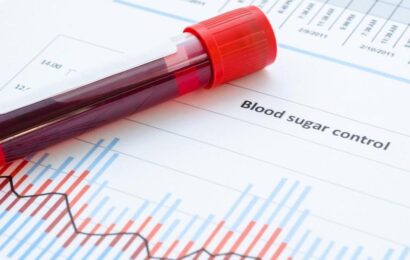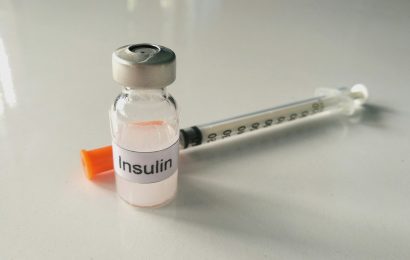The holidays are over. You survived Halloween, Thanksgiving, Christmas, Hanukkah, New Year’s… Perhaps you indulged yourself a bit too much and now your waistband is a smidge too tight. Or maybe you just feel tired and bloated from too much rich, fatty food and holiday spirits. Perhaps your blood glucose levels are running higher than usual.
It’s not a surprise that New Year’s resolutions tend to focus on losing weight, getting healthier, and feeling better. And like most people, you want the weight off yesterday and you want to feel better now! So, even though, deep inside, you know that the smart, sensible way to lose weight and gain more energy is by taking it slow and steady, some of those quick weight-loss plans seem pretty tempting. Maybe what’s caught your attention is a “detox” diet. What can it hurt, you ask?
“Detox” Demystified
In this case, “detox” doesn’t mean checking into a rehab facility to wean yourself off alcohol. What “detox” refers to, in the dieting world at least, is a dietary detoxification plan. This is a temporary dieting plan (as are most diets) that involves following a regimen (usually pretty extreme) in order to cleanse your body of “toxic” substances such as pesticides, chemicals, additives, pollutants…or food that just isn’t very good for you. Sometimes people “detox” in order to clear their minds, sharpen their focus, or lose weight quickly.
Detox Demystified
There are different detox regimens, some harsher than others. Most of them are very-low-calorie liquid diets. Some detox plans aim to clean you out with the use of fiber supplements, enemas, or herbal teas that act as laxatives. And some plans have you fast for a few days, after which you gradually add back food. There’s no shortage of detox plans, either, so you can take your pick. Just Google “detox diet.” Or, check yourself into a spa and get pampered while you purge your system of bad things (of course, be prepared to pay a hefty sum, too.).
Some detox plans last a few days, other last may last a few weeks. One of the more popular detox plans is “Master Cleanse.” If you’re a fan of Beyoncé, you might recall that she did the “Master Cleanse” in order to slim down for the film Dreamgirls. “Master Cleanse” consists of drinking at least two liters each day of the following concoction: lemon juice, maple syrup (the real stuff), and cayenne pepper. Oh, and don’t forget the laxative tea and salt water flushes. The premise of this plan, as with many detox plans, is to flush out toxins, clean out your colon, and provide just enough calories (from the maple syrup) so that you don’t pass out.
While it sounds like a fad diet, “Master Cleanse” has been around for more than 50 years, initially developed to treat ulcers. Will you lose weight on “Master Cleanse”? Sure. Beyoncé lost weight and you likely would, too. The problem, as with most detox plans and other fad diets, is that you’ll regain the weight when you stop detoxing. And you can’t stay on “Master Cleanse” forever without running the risk of doing real harm to yourself. Other detox plans are perhaps less extreme by including fruits and vegetables, along with a lot of juice. It’s no surprise that detox diets have a celebrity following, either. Gwyneth Paltrow, Oprah, and Bill Clinton have all jumped on the detox bandwagon at one point or another.
Flawed Logic
Detox diets do have their appeal. The idea of cleansing your system and ridding your body of toxins, pollutants, and sludge is often what draws people to these plans. However, what many people don’t realize is that the body has its own built-in “detox” machine in the form of our internal organs. If we didn’t, we wouldn’t be around for too long. Our lungs, liver, kidneys, intestines, and immune system are highly efficient at ridding the body of harmful things, whether they be chemicals, fatty foods, or bacteria. Granted, sometimes our detox machines are overwhelmed by harmful substances, but for the most part, we all have a system in place to stay relatively healthy.
Also, there’s little, if any, evidence that detox diets actually do any good. Some people do report feeling better when on a detox diet and that can be attributed to drinking more water, cutting out alcohol, caffeine, fat, and sugar, and even to being in a state of starvation. When someone is starving, he often feels more energetic and euphoric.
Detox Downside
Detoxing for a day or even a few days is probably not too harmful…if you’re in good health. However, detox diets aren’t recommended for anyone with chronic conditions, like diabetes, or heart, liver, or kidney disease, or for certain populations, like pregnant women, children or teenagers, and older adults. Short-term side effects of detox diets include fatigue, nausea, vomiting, diarrhea, lightheadedness, and swings in blood glucose levels. Longer-term, and more serious, effects include loss of lean muscle mass, irregular heartbeat, heart or kidney damage, bowel perforation (if enemas are involved), infections, and severe dehydration. So, resist the temptation to detox and remember that any benefits you might derive from it will be very short lived. As the saying goes, slow and steady wins the race!
Happy New Year!




